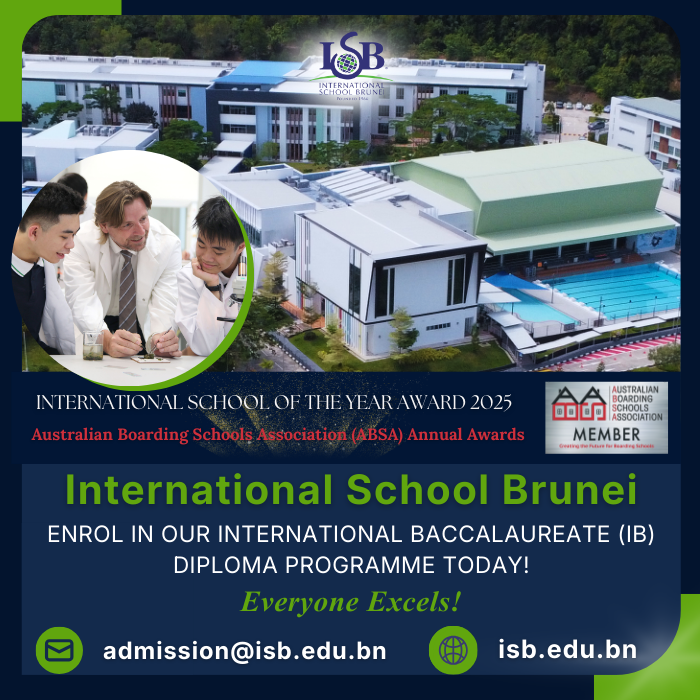What Is Pre-University in Singapore?
Pre-university is simply defined as the time period before entering university, usually lasting one to two years. Secondary school leavers can enrol in the pre-university programme of their choice to kick start their higher education journey. Singapore offers a wide variety of pre-university programmes for those looking to further their studies. Pre-U students in Singapore have the necessary qualifications to pursue their undergraduate studies in Singapore or abroad.
Age Group Of Pre-University in Singapore
Secondary school leavers can enrol in pre-university in Singapore at age 16 as soon as they complete their GCE N(A)-Levels or GCE O-Levels. The results obtained from these qualifications will help students determine which pre-university pathway is the best for them. Majority of secondary school students at international schools complete their IGCSE examinations at age 16. Therefore, they can begin their pre-university journey earlier.
The Benefits and Importance of Pre-University
Pre-university education is an important stepping stone in an individual’s academic life before they transition to university. Students have a chance to determine what programme they want to pursue based on their interests, passions, aspirations and budget. This is also the time where their learning preferences and learning styles will be fully developed. In addition, they can also gauge their level of interest in academics and whether they want to enter the workforce right away. As pre-university courses are offered by colleges and universities, students will experience a taste of university life and this provides them an opportunity to hone their soft skills and interpersonal skills.
What are Pre-University programmes?
The topics one learns at pre-university is heavily dependent on the type of pre-university programme chosen. Generally, pre-university courses cover a variety of subjects in Science, Arts, Humanities and Languages. Students have the opportunity to pick the subjects they want to focus on according to their academic goals. Most pre-university programmes will have broad subjects that will provide students with the qualifications needed to enter a range of undergraduate programmes. Diploma programmes are the only pathway that leaves graduates with a specific skill set that allows them to enter the workforce right away.
Types of Pre-University Programmes
1. A Level
A typical A Level programme takes up to two years to complete. A minimum of three A Level subjects is required to enter most universities. A Level is divided into Advanced Subsidiary (AS Level) and A2 Level. Examinations are carried out at the end of each level and carry 50% of the overall grade. A Level results will be recognised globally and allow you to enter most private and public universities in Malaysia and around the world.
2. SACE and AUSMAT
Both SACE and AUSMAT can be completed in a year. The curriculum is roughly 50% examination based for AUSMAT and 30% for SACE International, while the remaining is based on coursework. Both programmes are also recognised by most Malaysian private universities and most universities around the world.
3. CPU and CIMP
The CPU and CIMP take up to 18 months to complete. The Ontario Secondary School Diploma (OSSD) is granted to students who complete the CPU or CIMP. Students have to fulfil at least 10 hours of community service and pass the Ontario Secondary School Literacy Test (OSSLT) in order to graduate. In addition, students are assessed continuously through 70% of coursework and 30% of examinations.
4. American Degree Programme (ADP)
The ADP leads directly to a degree and takes around four years to complete. Many institutions offer credit transfer options which allow students to continue their degree in American universities. Students can opt for 2+2 (two years in Malaysia and two years abroad) or 1+3 (one year in Malaysia and one year abroad). Alternatively, students can complete the entire ADP locally as some colleges also offer 4+0.
5. International Baccalaureate Diploma Programme (IBDP)
The IBDP is a two-year programme and is offered by a number of international schools in Malaysia. Applicants need to have excellent academic results in addition to passing an entrance test and interview. The IBDP requires students to complete six subjects, which are assessed through assignments, oral presentations and examinations. Each subject is graded from 1 to 7, with 7 being the highest.
Foundation programmes are catered to students who want to continue their undergraduate degree in the same university. The most common Foundation programmes are in Science, Arts and Business. Taking a year to complete, Foundation courses are assessed through a combination of assignments, quizzes and exams.
Types of Pre-University in Singapore
There are many Singapore pre-university options for students to choose from depending on their academic performance, interests in talents.
1. International Baccalaureate Diploma Programme (IBDP)
IBDP is a two-year pre-university programme that offers a broad and balanced curriculum that develops students' academic and personal skills. It is recognized by universities worldwide and is designed to prepare students for higher education in any country.
2. Integrated Programme (IP)
IP is a six-year programme that combines secondary and pre-university education into a single programme. Students in IP schools bypass the GCE O-Level examinations and proceed directly to the pre-university phase, which is usually the IB or A-Level programme.
3. Junior Colleges (JCs) or Millennia Institutes (MI)
JCs offer a two-year pre-u programme whereas MI offers a three-year pre-u programme that prepares students for the GCE A-Level examinations. The curriculum is focused on academic subjects such as mathematics, sciences, humanities, languages, and the arts. However, for MI the curriculum also includes a wider range of subjects and is designed to cater to students with different academic abilities.
4. Polytechnics
Polytechnics in Singapore offer students a hands-on, practice-based learning curriculum that equips them with skills to enter the workforce. Industrial training or work attachments are part and parcel of a polytechnic education. There are over 30 courses for students to choose from such as engineering, education, nursing, business and design. Singapore currently has five polytechnics.
5. Institute of Technical Education (ITE)
ITEs in Singapore provide a comprehensive vocational education to students to meet the workforce needs in various industries. Students can enrol in Nitec, Higher Nitec courses, or traineeship programmes conducted in partnership with employers. Some of the courses offered at ITEs include Built Environment, Pastry & Baking, Hospitality & Operations, and Paramedic & Emergency Care. There are currently three ITE campuses in Singapore.
6. Arts Institutions
LASALLE College of the Arts (LASALLE) and Nanyang Academy of Fine Arts (NAFA) are the only two arts institutions in Singapore that are publicly funded to offer a wide range of courses in design, media, fine arts and performing arts. There are opportunities for students to gain industry exposure through collaborative design projects with companies, participating in visual arts exhibitions and performing in concerts.
Other pre-university pathways in Singapore include independent schools specialising in sports and arts, government-affiliated educational institutes and autonomous universities.
How do you apply for Pre-University in Singapore?
Students in Singapore should start early and do as much research as possible before choosing a pre-university programme. It is important not to follow what friends are doing or choose a course because the course seems easy. Information is readily available online with course structures, fees, duration, career prospects and many more. In addition, students need to make sure they meet the entry requirements and have the qualifications needed to enrol in a particular course. Students can also visit Open Days and higher education fairs to see what pre-university options are available to them.
How to choose the right Pre-University
Enrolling in a pre-university programme that fits your needs paves the way for a positive and fulfilling education experience and eventually a long-lasting career. Before choosing a pre-university course, it is important to ask yourselves the following questions:
- Do I want to study locally or abroad?
- Do I want to pursue an undergraduate degree? If so, which field would I like to explore?
- Do I possess the entry requirements needed for the pre-university programme?
- What are my learning preferences? Do I enjoy studying for examinations or thrive in group work and presentations?
- What is my budget for pre-university studies? Are there scholarships or financial aid available?
What are the fees for Pre-university in Singapore?
The fees for pre-u education in Singapore vary depending on the institution and the programme of study. Here are some approximate average fees:
1. Junior College (JC): SGD 1,200 - 2,500 per year
2. Millennia Institute (MI): SGD 700 - 2,000 per year
3. A Level: SGD 15,000 - 20,000 for two years
4. IBDP: SGD 35,000 - 40,000
5. Polytechnic: SGD 2,800 - 3,200 per year
It is important to note that these are only approximate averages and may vary depending on the institution and the specific programme of study. Additionally, there may be additional costs such as exam fees, textbooks, and extracurricular activities.
Some schools may also offer financial assistance to eligible students so it's best to check with the school directly for the most updated information.
References:
- https://www.k12academics.com/Education%20Worldwide/Education%20in%20Singapore/pre-university-post-secondary-studies
- https://www.moe.gov.sg/post-secondary/overview
- https://www.moe.gov.sg/post-secondary/admissions
- https://www.moe.gov.sg/financial-matters/awards-scholarships
































